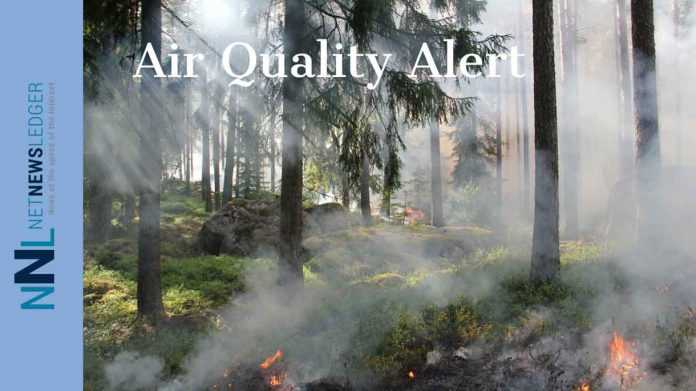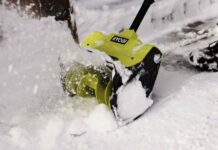DRYDEN – Weather Advisory – Air Quality Alerts have been issued for Dryden, Vermilion Bay, Ignace, Armstrong / Whitesand, Pickle Lake, Cat Lake, Summer Beaver, Wunnumin Lake, Kingfisher Lake, Sioux Lookout and Savant Lake.
Attention, residents of Northwestern Ontario! The region is currently under the influence of smoke from nearby forest fires, leading to reduced visibility and poor air quality. Smoke plumes originating from these wildfires have spread across the area, causing elevated levels of air pollution. These conditions are expected to persist throughout the day, posing health risks to individuals exposed to the smoke.
It is important to understand that even low concentrations of wildfire smoke can have adverse effects on respiratory health. Everyone, especially those with pre-existing lung or heart conditions, older adults, children, pregnant individuals, and outdoor workers, should take proactive measures to minimize their exposure to the smoke.
If you have a respiratory condition, consult with your healthcare provider to create a personalized plan for managing smoke-related events. Ensure that you have an adequate supply of necessary medications at home and carry them with you during the wildfire season. Should you experience discomfort or worsening symptoms, reduce your activity level and seek medical advice if needed.
Monitoring the Air Quality Health Index (AQHI) and paying attention to your own symptoms is crucial. Mild irritation and discomfort are common when exposed to smoke, but these symptoms typically subside when the air clears. Staying hydrated can help your body cope with the effects of smoke. If you have a home HVAC system, use the highest rated MERV filter available (preferably 13 or higher) and keep the fan set to recirculate the air. Additionally, employing a portable High Efficiency Particulate Air (HEPA) air cleaner can aid in maintaining cleaner indoor air. Keep doors and windows closed unless the temperature inside your home becomes uncomfortable.
When venturing outdoors, consider wearing a well-fitted respirator-type mask, such as an N95 or equivalent respirator certified by NIOSH. These masks provide better protection against the fine particles present in smoke. However, note that respirators do not guard against the gases present in wildfire smoke. Listen to your body and reduce or halt outdoor activities if you experience symptoms.
Remember to check on the well-being of those around you, particularly individuals who may be more vulnerable to the effects of smoke. Take steps to reduce indoor air pollution by avoiding smoking or vaping indoors, refraining from burning incense and candles, minimizing frying activities, limiting the use of wood stoves, and reducing dust by wiping surfaces and using wet mopping techniques during episodes of pollution.
Lastly, if you find yourself experiencing stress, anxiety, or depression related to these conditions, reach out to your mental health care provider for guidance or visit the website https://www.wellnesstogether.ca/en-CA.
For comprehensive information on how to minimize health risks and contribute to pollution reduction, as well as up-to-date AQHI values and forecasts, visit www.airhealth.ca.







